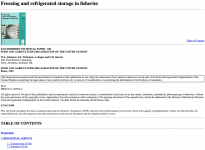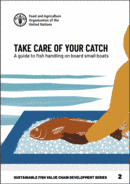Services and Infrastructure for Cold Storage
Many developing countries lack the basic infrastructure and educational program/services needed to support the development of an integrated cold chain for the distribution of perishable foods such as fish and fish products.
Public sector support is necessary for investments in basic infrastructure to support cold chain development (i.e. electricity, roads), and for educational programs at the primary, secondary and higher educational levels needed to promote the value of production, handling and consumption of high quality, safe and nutritious foods. Governments should limit disincentives (for example high taxes on imported refrigeration equipment) and invest in those components of infrastructure and education that are currently missing in development efforts involving cold chains.
Investment in improved technologies will be facilitated by good access to affordable credit and savings schemes. Furthermore, access to knowledge and skills related to good practice will be influenced by the quality of extension and educational services and the access cold storage operators and management have to such services.
Key Publications
The Food Wastage & Cold Storage Developing Realistic Solutions Infrastructure Relationship in India Summary of problem of food waste in India, current state of food production & wastage, existing cold storage infrastructure, challenges and measures taken by the Government. |
| |
Cold Chain Infrastructure and Related Industries - Contribution to Food Losses / Waste Reduction Overview of infrastructure issues from a Japanese perspective. | ||
Freezing and Refrigerated Storage in Fisheries This FAO publication provides an introduction to the operations and equipment used in fish freezing and cold storage on shore and sea, and gives information on applying low temperatures to reduce deterioration of quality. |
More Resources
More Resources
31 October 2023














